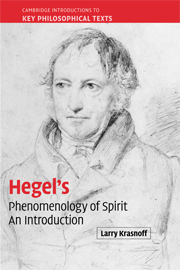2 - Knowledge
Published online by Cambridge University Press: 23 December 2009
Summary
It is often said that the main task of early modern philosophy is the epistemological project of showing how knowledge is possible, of explaining how we as subjects can know the true nature of objects. At some general level, this formulation is almost certainly right. But there are ways of explaining this epistemological project that are more misleading than helpful. For instance, a familiar way of talking about early modern accounts of knowledge, especially in the context of survey courses that run from Descartes to Kant, is to emphasize the problem of the external world. According to this familiar narrative, the epistemological problem of early modern philosophy is to show how a conscious subject is entitled to infer that his or her own individual sensations and thoughts can amount to knowledge of an external world of objects.
Once the problem is posed in this form, it appears that the only solution is some sort of idealism, some claim to the effect that what we even mean by a physical object depends on the contribution of a subject. The bluntest version of this claim, of course, was that proposed by Berkeley: a material object is just a particular collection of ideas in our minds. On this view, to see a tree is just to have certain ideas in our minds, and as for why it is that you and I both seem to have the same ideas placed in our minds when we observe and discuss the tree, Berkeley appeals to the power and goodness of God, who causes these ideas to appear to us simultaneously, making a shared account of nature possible.
- Type
- Chapter
- Information
- Hegel's 'Phenomenology of Spirit'An Introduction, pp. 18 - 31Publisher: Cambridge University PressPrint publication year: 2008

